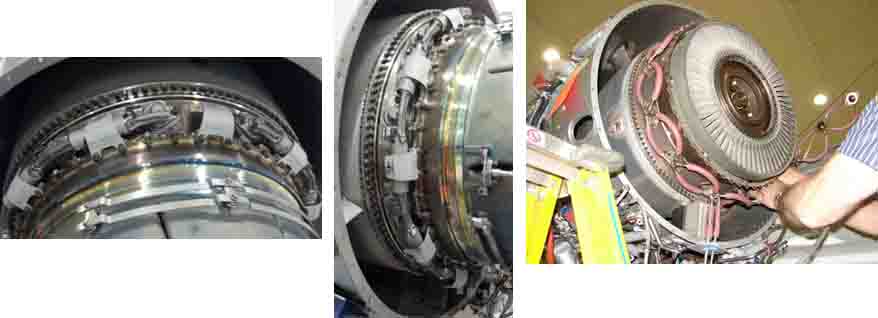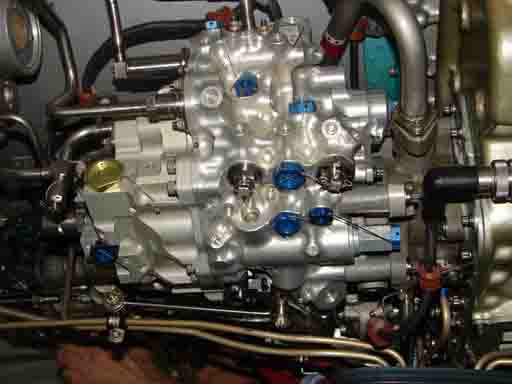At Hot Section Inspection or Overhaul events where the fuel manifold is exposed, the manifold is replaced by a newer style manifold.
The older manifold configuration, pictured left below, has a flexible hose that is replaced with a rigid tube, pictured right below. The new configuration also has an outer fuel tube encasing the tubes that will vent any fuel leakage overboard through the drain system.
There are two Service Bulletins (SBs) that complete the change: SB 30428 and SB 30465, in addition to a required airframe SB.
With the exception of the airframe SB, there are Commercial Support Program Notifications (CSPNs) – 1005989 and 1006443 – that will cover the majority of the cost of parts to incorporate. P&WC’s Eagle Service Program™ will cover the cost of labor for customers, when applicable.

This SB is only applicable to engines that have already complied with SB 30442.
If you have complied with SB 30409, it is recommended that you verify the part number of the Fuel Control Units (FCUs) currently installed. If the part number reveals that the FCU(s) are post SB 30442, the FCU will need to be replaced at the first scheduled minor inspection after 1,000 hours (Time Since New, Time Since Repair or Time Since Overhaul) on the FCU.
Currently, CSPN 1007421 covers parts and labor to comply with this SB.

December 2025
May 2025
March 2025
March 2025
January 2025